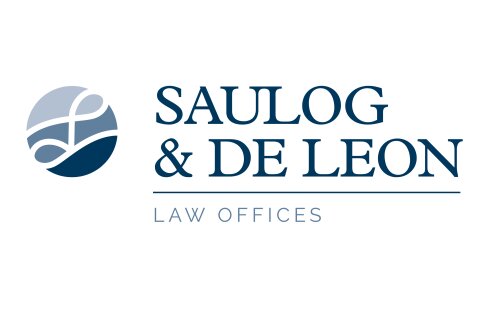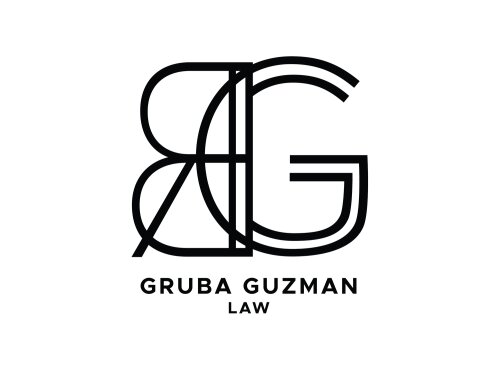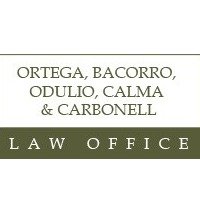Best Water Law Lawyers in Makati City
Share your needs with us, get contacted by law firms.
Free. Takes 2 min.
List of the best lawyers in Makati City, Philippines
About Water Law in Makati City, Philippines
Water Law in Makati City, Philippines, refers to the system of legal regulations and statutes that govern the use, management, and distribution of water resources within the city. Water Law covers a range of issues including the right to access water, water allocation, water pollution control, and the responsibilities of both governmental agencies and private entities in maintaining clean and sufficient water supply. Water Law in the Philippines is primarily shaped by national legislation, such as the Philippine Water Code (Presidential Decree No. 1067), as well as local ordinances and policies implemented by the Makati City government. These laws are designed to ensure sustainable and equitable access to water for all residents, while protecting water sources from overuse and contamination.
Why You May Need a Lawyer
Engaging a lawyer specializing in Water Law can be crucial in several situations. Common legal issues include disputes over water rights or access, challenges with water billing or disconnection, violations of water use permits, and conflicts involving water pollution or contamination claims. Businesses may require legal advice on regulatory compliance for wastewater management, securing government permits for water use, or navigating contracts with local utilities. Homeowners may also need legal help when experiencing unfair water service interruptions or when their property is affected by neighboring water usage practices. A Water Law lawyer can help clarify rights, represent clients in negotiations or litigation, and ensure adherence to both local and national water regulations.
Local Laws Overview
In Makati City, the implementation of Water Law is influenced by both national statutes and local ordinances. Key elements include:
- Water Code of the Philippines (PD 1067): Provides the overarching framework for water rights, prioritizing domestic use and emphasizing sustainable management.
- Clean Water Act (RA 9275): Sets rules regarding the protection, preservation, and revival of water quality in all water bodies, including the Pasig River and its tributaries affecting Makati.
- Environmental Codes and City Ordinances: Makati has local rules addressing wastewater disposal, solid waste management, and penalties for polluting public water sources.
- MWSS Regulations: The Metropolitan Waterworks and Sewerage System (MWSS) provides regulatory control over water service providers in Makati, such as Maynilad and Manila Water. These regulations govern rate setting, service standards, and customer rights.
- Barangay Level Guidelines: Certain barangays within Makati may enforce specific ordinances or guidelines regarding the sharing and protection of communal water sources.
Understanding and complying with these laws is crucial for avoiding disputes or penalties related to water use in Makati City.
Frequently Asked Questions
What is considered a water right in Makati City?
A water right is the legal entitlement granted to individuals or entities to use water for specific purposes, such as domestic, commercial, or industrial use, as defined under the Philippine Water Code and related regulations.
Who regulates water distribution in Makati City?
Water distribution is primarily regulated by the MWSS (Metropolitan Waterworks and Sewerage System) and executed by concessionaires like Maynilad and Manila Water. The Makati City government enforces supplementary ordinances.
What should I do if my water supply is disconnected without proper notice?
You should first contact your water provider and request an explanation. If the issue is unresolved, seek assistance from the MWSS Regulatory Office or the city government, or consider consulting a Water Law lawyer for legal remedies.
Can my neighbor divert a water source that affects my property?
No, unauthorized diversion of water that negatively impacts another property is prohibited under the Water Code. Such disputes can be addressed through local barangay offices or legal channels.
Are permits required for drilling wells or extracting ground water in Makati?
Yes, a water permit from the National Water Resources Board (NWRB) is required for drilling and utilizing groundwater, regardless of private property rights.
How can I report illegal dumping or pollution in Makati water bodies?
You may report directly to the Makati City Environment and Natural Resources Office (CENRO), the Department of Environment and Natural Resources (DENR), or the MMDA for incidents affecting larger waterways.
What laws protect Makati residents from contaminated water?
The Clean Water Act and local city ordinances set standards for water quality and require regular monitoring by service providers and the government to ensure safe and potable water.
Can businesses discharge wastewater directly into public sewers or waterways?
No, businesses must comply with the discharge standards set by the Clean Water Act and secure appropriate permits. Violations can lead to penalties or closure orders.
Who do I contact for water billing disputes in Makati?
Start by reaching out to your water service provider. If the issue persists, the MWSS Regulatory Office oversees complaints and mediation between consumers and providers.
Is rainwater harvesting allowed in Makati City?
Rainwater harvesting is generally encouraged for non-potable use, but installations must comply with city building codes and safety standards.
Additional Resources
Residents and businesses seeking legal advice or more information regarding Water Law in Makati City can consult the following:
- Makati City Environment and Natural Resources Office (CENRO): Handles environmental complaints, education, and permitting.
- Metropolitan Waterworks and Sewerage System (MWSS): Oversees water service management and consumer concerns.
- National Water Resources Board (NWRB): Issues water permits and manages water resource allocations.
- Department of Environment and Natural Resources (DENR): Monitors water quality, pollution, and enforces environmental laws.
- Barangay Offices: Facilitate mediation and enforcement of local regulations regarding communal water use.
- Accredited Environmental Lawyers’ Organizations: Professionals who specialize in Water Law and environmental cases.
Next Steps
If you believe you have a legal issue concerning Water Law in Makati City, begin by documenting all relevant details, including location, involved parties, and supporting evidence such as photos, contracts, or water bills. Contact the appropriate agency or utility provider to attempt resolution. If the concern remains unresolved, consult with a lawyer specializing in Water Law. Legal professionals can guide you on your rights, represent you in negotiations or litigation, and help ensure compliance with all applicable laws. You may reach out to the Makati City legal aid office or the Integrated Bar of the Philippines for referrals. Acting promptly improves your chances of a favorable outcome and helps protect both your rights and Makati’s valued water resources.
Lawzana helps you find the best lawyers and law firms in Makati City through a curated and pre-screened list of qualified legal professionals. Our platform offers rankings and detailed profiles of attorneys and law firms, allowing you to compare based on practice areas, including Water Law, experience, and client feedback.
Each profile includes a description of the firm's areas of practice, client reviews, team members and partners, year of establishment, spoken languages, office locations, contact information, social media presence, and any published articles or resources. Most firms on our platform speak English and are experienced in both local and international legal matters.
Get a quote from top-rated law firms in Makati City, Philippines — quickly, securely, and without unnecessary hassle.
Disclaimer:
The information provided on this page is for general informational purposes only and does not constitute legal advice. While we strive to ensure the accuracy and relevance of the content, legal information may change over time, and interpretations of the law can vary. You should always consult with a qualified legal professional for advice specific to your situation.
We disclaim all liability for actions taken or not taken based on the content of this page. If you believe any information is incorrect or outdated, please contact us, and we will review and update it where appropriate.
















